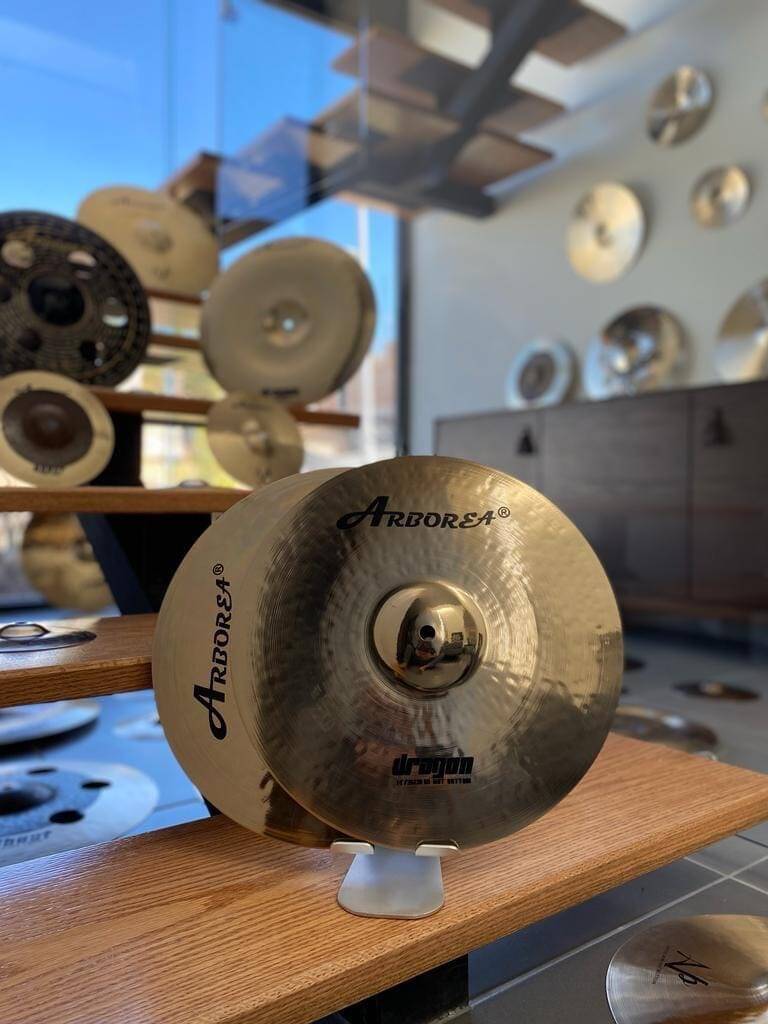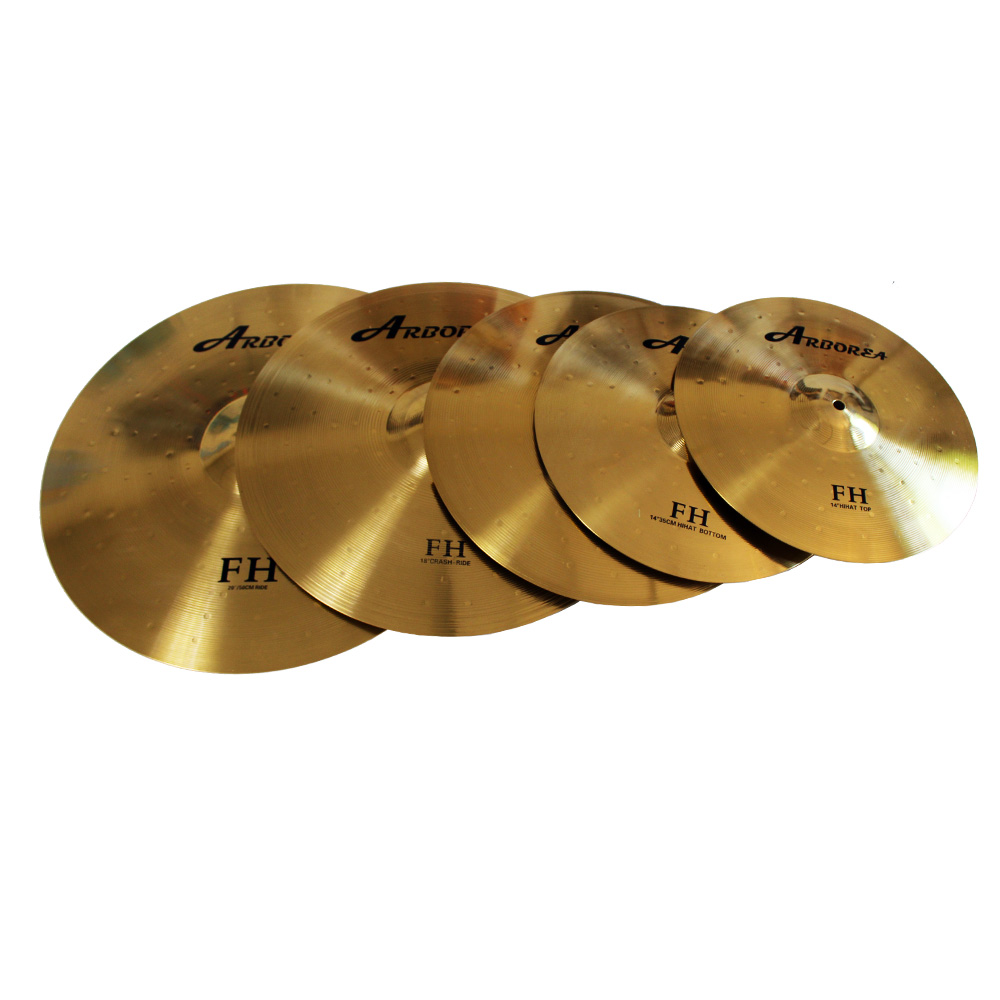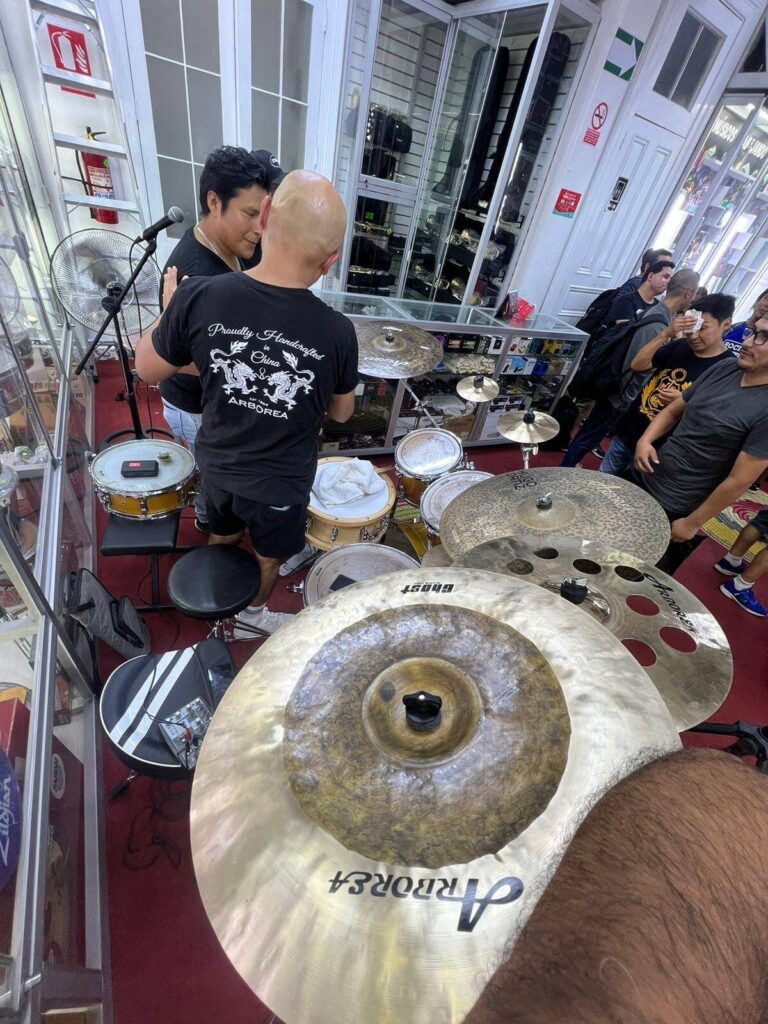Introduction
Cymbals are an essential part of any drum kit, and their material composition plays a crucial role in determining their sound and durability. The two primary materials used in cymbal manufacturing are bronze and brass. Bronze cymbals are further categorized into B20 and B8 alloys, with the numbers representing the percentage of tin in the alloy. In this article, we will delve into the differences between B20, B8, and brass cymbals in terms of timbre and durability, supported by relevant data and comparisons.
B20 Bronze Cymbals
B20 bronze cymbals, also known as bell bronze, are composed of 80% copper and 20% tin, with traces of other metals like silver. This alloy is renowned for its versatility and complex sound character, making it a popular choice among professional cymbal makers.

Timbre
- B20 bronze cymbals offer a wide frequency range, allowing for a rich and nuanced sound.
- They can be manipulated to sound darker or brighter, depending on the desired tone.
- B20 cymbals are known for their warmth and complexity, making them suitable for various musical genres, from jazz to rock.
Durability
- The high tin content in B20 bronze makes the cymbals more brittle and challenging to work with.
- However, this brittleness also contributes to their durability and resistance to cracking and keyholing.
- B20 cymbals can withstand vigorous playing and prolonged use, making them a reliable choice for touring and regular performances.
B8 Bronze Cymbals
B8 bronze cymbals, also known as 2002 alloy or CuSn8, consist of 92% copper and 8% tin. This alloy is often used in entry-level and intermediate-level cymbals due to its lower cost and ease of production.
Timbre
- B8 cymbals are known for their bright, cutting, and harmonically pure tone.
- They have a more focused and less complex sound compared to B20 cymbals.
- B8 cymbals are well-suited for live stage use, where their cutting sound can help them project better.
Durability
- With a lower tin content, B8 cymbals are less brittle and easier to work with than B20 cymbals.
- However, they may not be as durable as B20 cymbals and may be more prone to cracking or denting under heavy use or aggressive playing styles.
Brass Cymbals

Brass cymbals are primarily made of an alloy of copper and zinc, with varying proportions depending on the manufacturer. They are typically used in entry-level and budget cymbal lines due to their low cost and ease of production.
Timbre
- Brass cymbals tend to have a warmer and duller sound compared to bronze cymbals.
- They lack the shimmer and sensitivity of tin bronze cymbals, resulting in a more subdued and less complex tone.
- Brass cymbals are often described as having a harsh or “toy-like” sound, especially when played aggressively.
Durability
- Brass is a relatively soft metal, making brass cymbals more prone to denting, cracking, and warping under heavy use or aggressive playing styles.
- Brass cymbals are not designed for prolonged or intense playing and are typically recommended for practice or low-volume settings.
Sound Comparison
The B20 cymbal exhibits a warm, complex, and resonant tone, with a rich blend of overtones. The B8 cymbal has a brighter and more focused sound, with a cutting presence. The brass cymbal, in comparison, has a duller and harsher tone, lacking the shimmer and complexity of the bronze cymbals.
Durability Comparison
To illustrate the durability differences, let’s consider some real-world examples:
- Professional drummers who tour extensively and play with high intensity often prefer B20 cymbals for their ability to withstand rigorous playing without cracking or keyholing.
- Intermediate and beginner drummers may opt for B8 cymbals as a more cost-effective option, sacrificing some durability for a lower price point.
- Brass cymbals are typically used for practice or low-volume settings, as they are more prone to denting and cracking under heavy use.
Alloy Composition and Manufacturing Process
The alloy composition and manufacturing process play a significant role in determining the sound and durability of cymbals.
- B20 cymbals are typically cast from individual molds, allowing for slight variations in alloy composition and production process, resulting in unique sonic fingerprints for each cymbal.
- B8 cymbals are often stamped from sheet metal, leading to greater consistency within a production batch but potentially sacrificing some individuality.
- Brass cymbals are generally produced through a simpler and more cost-effective manufacturing process, contributing to their lower price point but also potentially impacting their overall quality.
Pricing and Value

The material composition and manufacturing process also influence the pricing and perceived value of cymbals.
- B20 cymbals, due to their complex production process and high-quality alloy, are typically the most expensive option.
- B8 cymbals strike a balance between cost and quality, making them a popular choice for intermediate and budget-conscious drummers.
- Brass cymbals are the most affordable option but are generally considered entry-level or practice cymbals, with limitations in terms of sound quality and durability.
Conclusion
When choosing cymbals, it’s essential to consider your musical style, playing environment, and budget. B20 bronze cymbals offer unparalleled warmth, complexity, and durability, making them a top choice for professional and demanding drummers. B8 bronze cymbals provide a bright and focused sound at a more accessible price point, suitable for various musical genres and skill levels. Brass cymbals, while affordable, may not be the best choice for serious drummers due to their limited sound quality and durability. Ultimately, the choice comes down to personal preference, playing style, and the specific requirements of each drummer.
